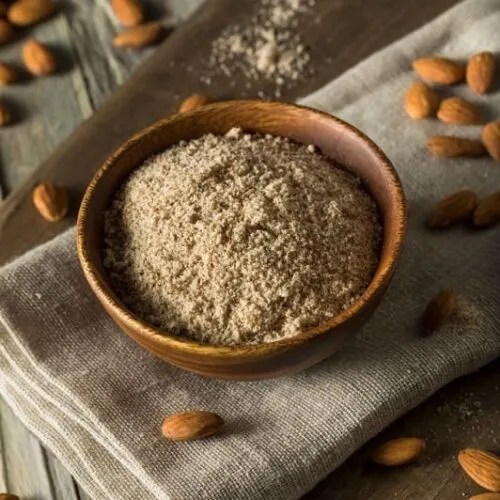Does Almond Flour Expire? Understanding Shelf Life And Storage Tips
Almond flour is a popular alternative to traditional wheat flour, especially for those following gluten-free or low-carb diets. However, many people are concerned about the shelf life of almond flour and whether it can expire. In this article, we will explore the factors that affect the expiration of almond flour, how to store it properly, and tips to recognize if it has gone bad.
With the rise of health-conscious eating, almond flour has gained significant attention. Not only is it low in carbohydrates, but it is also rich in nutrients such as vitamin E and magnesium. But like all food products, almond flour does have a shelf life, and understanding this can help you avoid waste and ensure the quality of your baked goods.
In this comprehensive guide, we will delve into how long almond flour lasts, the best storage methods, and ways to tell if your almond flour is still good to use. Whether you're a seasoned baker or just starting, knowing how to handle almond flour properly is crucial for your culinary adventures.
Table of Contents
Understanding Shelf Life of Almond Flour
Almond flour, like other nut-based flours, has a shelf life that can vary depending on several factors. The primary considerations include the type of almond flour, the manufacturing process, and storage conditions. Generally, almond flour can last:
- Unopened: Up to 1 year in a cool, dry place.
- Opened: 6 months to 1 year when stored properly.
- Refrigerated: Up to 1 year for both opened and unopened packages.
- Frozen: Up to 2 years if kept in an airtight container.
It is essential to check the packaging for a "best by" date, which can give you an idea of its freshness. However, this date is not an expiration date; almond flour may still be good beyond this point if stored correctly.
How to Store Almond Flour
Proper storage is key to extending the shelf life of almond flour. Here are some recommended storage methods:
- Cool, Dry Place: Store almond flour in a pantry or cabinet away from heat and moisture.
- Airtight Container: Transfer almond flour to an airtight container to prevent moisture absorption and pest contamination.
- Refrigeration: For longer shelf life, store in the refrigerator. Make sure the container is sealed well.
- Freezing: For extended storage, almond flour can be frozen. Use a freezer-safe, airtight container to maintain its quality.
Signs Almond Flour Has Gone Bad
Even with proper storage, almond flour can go bad. Here are some signs to look out for:
- Off Smell: Fresh almond flour has a nutty aroma. If it smells rancid or sour, it is best to discard it.
- Change in Color: Almond flour should have a light beige color. If it has darkened or shows signs of mold, do not consume it.
- Texture Changes: Clumping or a gritty texture can indicate moisture contamination.
- Bad Taste: If you taste it and it has a bitter or unpleasant flavor, it is no longer good.
Tips for Using Almond Flour
When using almond flour in your recipes, consider the following tips for the best results:
- Mixing with Other Flours: Almond flour works well when mixed with other gluten-free flours for better texture.
- Adjusting Liquid Ingredients: Almond flour absorbs more moisture than regular flour, so you may need to adjust the liquid in your recipes.
- Storing Leftovers: If you have leftover almond flour from a recipe, store it properly to maintain its quality.
Nutritional Benefits of Almond Flour
Almond flour is not just a versatile ingredient; it also provides numerous health benefits:
- Low in Carbs: Ideal for keto and low-carb diets.
- High in Protein: Contains more protein than traditional flours.
- Rich in Nutrients: Packed with vitamin E, magnesium, and antioxidants.
Almond Flour vs. Other Flours
Almond flour has distinct advantages over regular wheat flour:
- Gluten-Free: Suitable for those with gluten intolerance.
- Low Glycemic Index: Helps regulate blood sugar levels.
- Higher Nutritional Value: Compared to all-purpose flour, almond flour has more vitamins and minerals.
Frequently Asked Questions
Can I use expired almond flour?
Using expired almond flour is not advisable, as it may affect the taste and quality of your baked goods.
How can I tell if almond flour is rancid?
Rancid almond flour will have an off smell, a change in color, and an unpleasant taste.
Conclusion
In summary, almond flour does have an expiration date, but with proper storage and handling, you can extend its shelf life significantly. Always check for signs of spoilage before using it in your recipes. If you find yourself with an opened package, consider refrigeration or freezing to maintain its quality. Enjoy the health benefits and versatility that almond flour brings to your kitchen!
We hope you found this article informative! Please leave a comment below with your thoughts, share this article with others, or check out our other articles for more tips and recipes.
Thank you for reading, and we look forward to seeing you back on our site for more insightful content!
Article Recommendations



ncG1vNJzZmilqZu8rbXAZ5qopV%2BZtq670m1mnaeVqHqiuMyopZ1llqG8tr6Mnq%2BpoaKae6nAzKU%3D